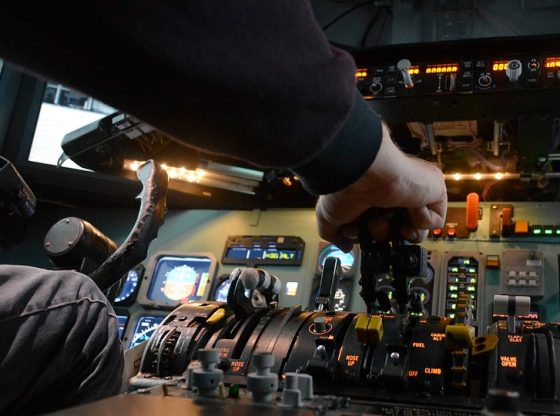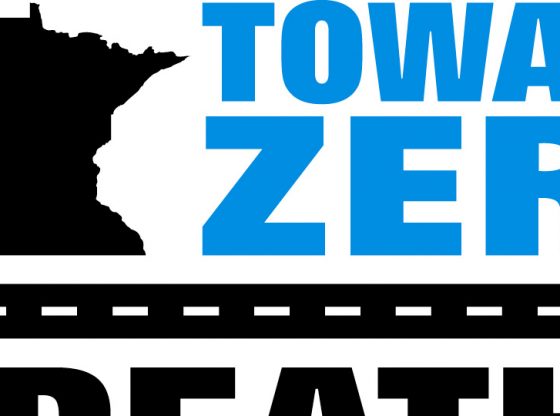Technique enables children to express their thoughts and feelings through their “natural language” of play
Today, Alexis Greeves, Licensed Professional Clinical Counselor (LPCC), Registered Play Therapist and Supervisor (RPT-S), presented a Volunteers of America-Minnesota Mental Health Clinics’ workshop entitled, “Play Therapy with Deaf and Hard of Hearing Children and Youth” at Calvary Lutheran Church in Golden Valley. The program was designed to teach therapists and other professionals who work with deaf and hard of hearing children how they can apply play therapy techniques to meet the emotional needs of these children.
Play therapy techniques can be useful in helping resolve problems, strengthen relationships, develop self-understanding, learn self-regulation skills, and build their emotional vocabulary. Play therapy is regarded as a viable and important modality in working with all children in that it enables children to express their thoughts and feelings through their “natural language” of play. For deaf and hard of hearing children, it is especially viable because play can be more visual than language-based. The workshop introduced professionals to what is, and what is not, play therapy, as well as the components and techniques for child-centered play therapy and directive play therapy.
“For deaf children, the world is acutely visual,” reports Alexis Greeves, LPCC, RPT-S. “It is important to bring these children therapy in a non-threatening way using a format that is visual, playful, and accessible.”
Treating deaf children with play therapy is not very different from treating hearing children Greeves points out. “Sometimes you need to make adaptations,” she says. “And, it’s important to remember that even though it’s play therapy, it’s still often hard work for the children.”
“Anyone can do it, but parents in particular can benefit from applying the child-centered play therapy approach,” says Greeves. “Kids need freedom and not every moment needs to be a teachable moment. Sometimes teachable moments put too much pressure on a child.”
Greeves illustrates the benefits of child-centered play therapy with the story of an anxious nine year-old deaf girl who we will call Megan. She had trouble sleeping, was doing poorly in school and had difficulty explaining what was troubling her. “During therapy sessions, her play was frantic,” reports Greeves. “Megan chose to role play that she and I were sisters. In the playroom, Megan created our house where we would have dinner and go to bed. Then we would wake up in the middle of the night panicked because a stranger was breaking in.” Greeves says that Megan chose to replay the same scene for weeks and Greeves played alongside her while making observations. During those weeks of play, Greeves realized that Megan viewed her father, who was suffering from a progressive, degenerative disease, as her protector and that she was feeling less safe because of his condition. “You can’t ignore the symbolism and the emotional response,” Greeves states. The next week, Greeves indicates she engaged in guided corrective play. “As Megan arranged our house in the playroom, I told her that I had an alarm system installed that would keep us safe as we slept. We played the same scene as usual, but when it was bedtime, I reminded her that the alarm system would keep us safe and no one would be able to hurt us. After that, Megan’s play changed dramatically and we were able to work on some of her other issues,” reports Greeves.
The workshop was sponsored by The Starkey Hearing Foundation and was presented in American Sign Language (ASL) with voice interpreting.
Volunteers of America-Minnesota Mental Health Clinics
Volunteers of America-Minnesota Mental Health Clinics offers comprehensive mental health services, including psychotherapy, skill development, psychological testing, psychiatric services and aftercare services for children and families. Additionally, it is one of the only clinics in Minnesota which provides specialized mental health services for deaf, deaf/blind and hard of hearing (DHH) children, adolescents and their families through culturally and language specific comprehensive school-based, home-based, and outpatient mental health services.
Volunteers of America-Minnesota
Volunteers of America–Minnesota is a nonprofit organization founded in 1896 which offers a wide variety of services for more than 26,500 children, adolescents and their families, older adults, students, persons with disabilities and special needs, and adults completing rehabilitation programs each year. It is one of the oldest, largest and most comprehensive human service organizations in the state and has more than 60 programs, 900 employees and 13,600 volunteers, and a rich history of developing innovative programs to meet emerging social issues. Visit us at: http://www.voamn.org.
The Starkey Hearing Foundation
The Starkey Hearing Foundation is striving to change the social consciousness of hearing and hearing loss prevention. Hearing loss affects one in 10 Americans, and 63 million children worldwide, yet many do not have access to the hearing devices that can help correct that disability. Each year, the Foundation delivers more than 100,000 hearing aids through hearing missions in countries stretching from the U.S. to Vietnam. Since 2000, the Foundation has supplied nearly 500,000 hearing aids to people in need and is striving to achieve its goal of distributing over one million free hearing aids in this decade. In addition to giving the gift of hearing, the Foundation partners with Best Buy and the Grammy Foundation to promote ‘safe hearing’ and hearing loss prevention among teens and young people, through its national program, Soundmatters. For more information on the Starkey Hearing Foundation, visit http://www.starkeyhearingfoundation.org.
Source: PRlog




